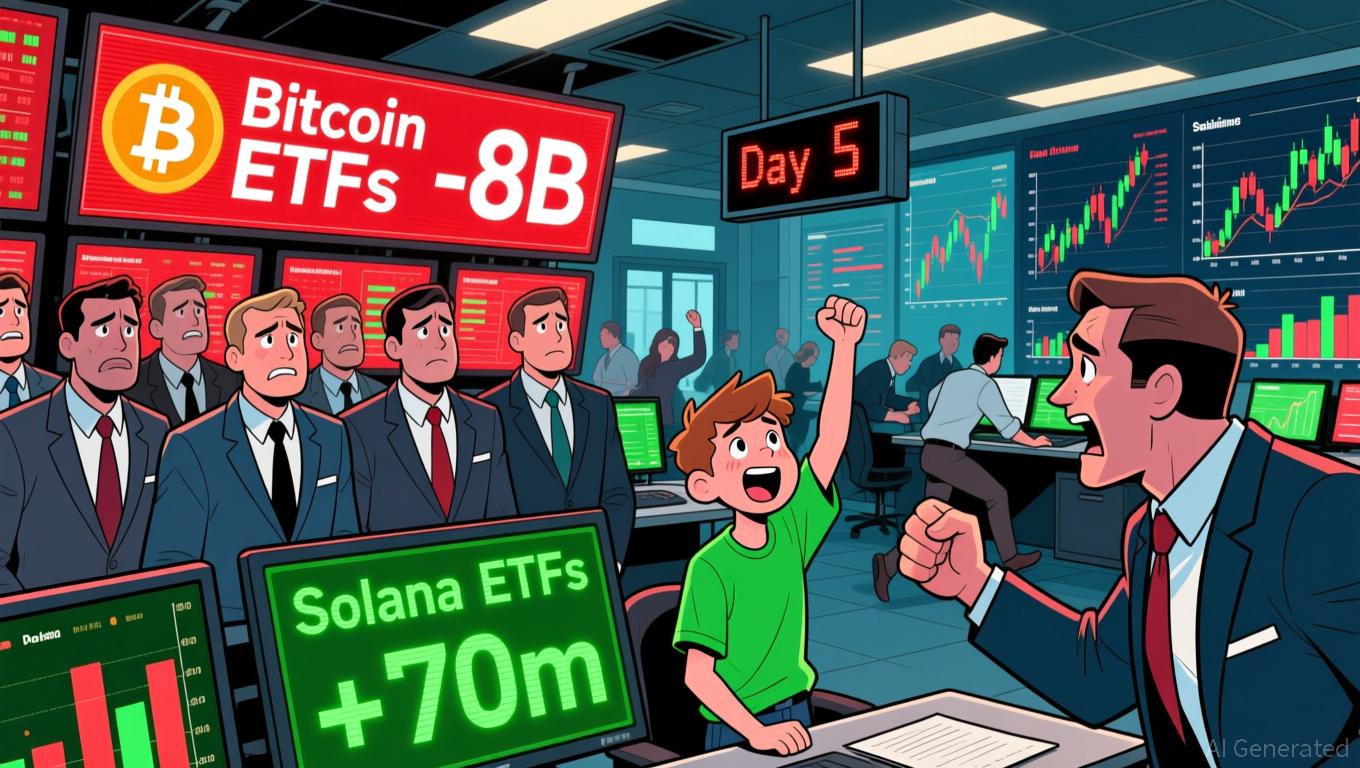East Asian stock markets decline as FTA negotiations stall and geopolitical tensions intensify
- East Asian markets fell sharply as geopolitical tensions and stalled trilateral FTA negotiations weighed on investor confidence, with Japan's Nikkei 225 dropping 2.50%. - China's push to revive the China-Japan-South Korea FTA faces resistance from Japan's pro-U.S. government, complicating regional economic integration efforts first launched in 2012. - South Korea signaled economic optimism with a 1.2% Q3 GDP growth and 8.1% 2026 spending increase focused on AI and semiconductors, despite U.S. tariff risk
Stock markets in both Japan and South Korea saw notable drops today, with the Nikkei 225 Index falling by 2.50%. Experts attribute these losses to persistent geopolitical strains and shifting regional trade relations, which are shaping investor outlooks. The Kospi Index also declined, mirroring the widespread uncertainty as East Asian countries deal with intricate economic and political issues, according to
China’s renewed efforts to advance a trilateral free-trade agreement (FTA) with Japan and South Korea have brought regional economic integration back into focus, though significant barriers remain. At the Asia-Pacific Economic Cooperation (APEC) forum, Chinese Commerce Minister Wang Wentao highlighted the importance of restarting the FTA talks, which began in 2012 but have stalled in recent years. Nonetheless, analysts warn that Japan’s recently elected conservative government, led by Prime Minister Sanae Takaichi and closely aligned with U.S. President Donald Trump, may be hesitant to deepen economic ties with China. Alicia Garcia-Herrero, chief economist for Asia-Pacific at Natixis, observed that Takaichi’s pro-U.S. orientation could restrict the FTA’s reach, and any benefits for South Korea and Japan might be overshadowed by China’s increasing self-reliance in critical industries, the Korea Times reported.

Meanwhile, South Korea has expressed a positive outlook on its economic rebound. President Lee Jae Myung stated in his annual budget address that the nation has "reached a turning point," referencing a 1.2% GDP increase in the third quarter and stronger consumer confidence. Lee announced that government spending will rise by 8.1% in 2026 to 728 trillion won ($512 billion), prioritizing sectors like AI, semiconductors, and cultural exports. The administration’s $20 billion emergency package, which includes direct cash payments, has stimulated domestic consumption, though obstacles remain in stabilizing exports amid U.S. tariff risks, according to
The trilateral FTA also faces challenges beyond political considerations. China, Japan, and South Korea are already members of the Regional Comprehensive Economic Partnership (RCEP), which provides a less comprehensive trade arrangement. Su Yue, principal economist for China at the Economist Intelligence Unit, suggested that further integration is likely to be limited, with advancements mainly possible in services and digital trade. At the same time, Japan’s restrictions on advanced semiconductor equipment exports and China’s curbs on rare earths continue to create friction, making broader collaboration more difficult, the Korea Times noted.
As these events unfold, the relationship between geopolitical risks and economic policy will continue to play a crucial role. With the U.S. Supreme Court preparing to review Trump’s tariff powers next week, investors are paying close attention to how regional partnerships and trade policies adjust to developments in Washington, the Korea Times added.
Disclaimer: The content of this article solely reflects the author's opinion and does not represent the platform in any capacity. This article is not intended to serve as a reference for making investment decisions.
You may also like
ZEC Climbs 3.55% as Investors Show Support and Derivative Positions Expand
- Zcash (ZEC) surged 3.55% in 24 hours, hitting $490.4, driven by institutional interest and endorsements from figures like Naval and Arthur Hayes. - Derivatives markets show growing speculative demand, with a $13.7M leveraged long position on Hyperliquid reflecting heightened bullish sentiment. - Privacy coin sector valuation rose 2.9% to $25.5B, supported by ZEC's 780% year-to-date gains and increased trading volume of $3.87B. - Technical backtests analyze ZEC's 5%+ daily surges as momentum signals, with
DASH Drops 13.71% Following Q3 Earnings Shortfall and Announcement of 2026 Investment Strategy
- DoorDash's Q3 2025 earnings showed revenue above estimates but EPS below, leading to a 13.71% post-earnings stock drop. - Despite strong 25% YoY GOV growth and 13.8% net margin, 2026 investment plans raised short-term margin concerns. - Deliveroo acquisition's adjusted EBITDA contribution dropped by $32–$40M in 2026 due to accounting adjustments, adding investor uncertainty. - Backtesting suggests EPS misses correlate with downward price pressure when paired with significant capital allocation announceme
Bitcoin News Today: Bitcoin ETFs See $8B Outflows While Solana ETFs Draw $70M Over Five Consecutive Days
- U.S. Bitcoin ETFs faced $8.02B outflows over six days, with BlackRock's BIT losing $375.5M amid Bitcoin's $109k-to-$101k volatility. - Solana ETFs gained $70M in five days, including Bitwise BSOL's $195M inflow, as investors shift capital amid crypto market weakness. - Macroeconomic pressures and Fed hawkishness drove redemptions, but Matador locked $100M in Bitcoin for long-term accumulation. - Bitwise predicts $125k-$150k Bitcoin by year-end, though prices risk falling below $100k or $93k if support br

Cardano News Today: Cardano’s DeFi Challenges: Lack of User Engagement and Issues in Governance
- Cardano founder Charles Hoskinson blames user apathy for DeFi stagnation, citing low TVL ($262M) compared to Solana ($11.17B) and Ethereum ($84.22B). - He emphasizes governance/coordination gaps over technical flaws, noting 1. 3M stakers hold $15B but lack liquidity participation despite stablecoin availability. - Cardano's roadmap prioritizes Bitcoin interoperability and real-world finance via projects like Midnight and RealFi to unlock ADA/BTC liquidity. - Market skepticism persists as ADA drops 6.2% a
